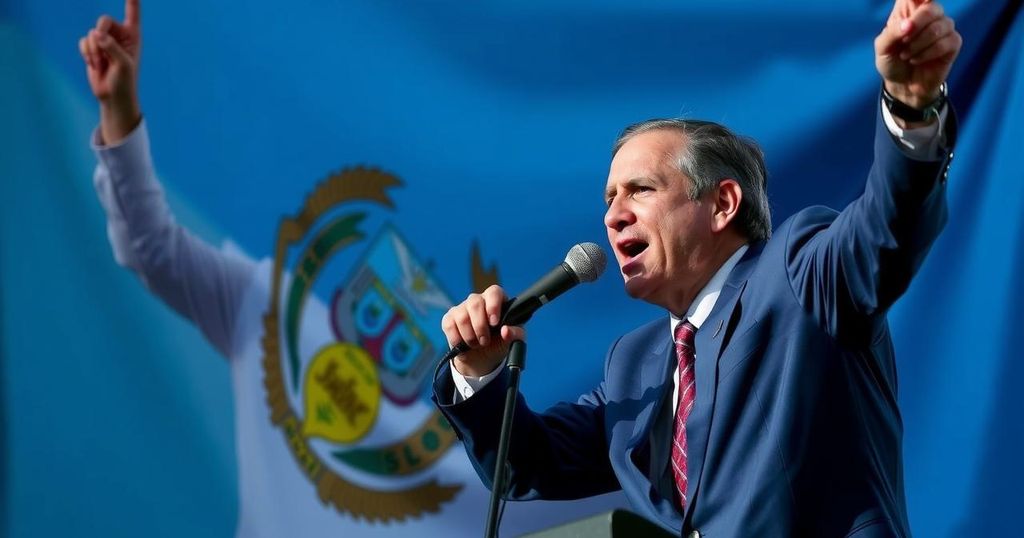In Uruguay’s latest presidential run-off, Alvaro Delgado concedes defeat to left-wing challenger Yamandu Orsi. This outcome ends the conservative government that has been in power since 2020. Voter turnout was substantial, and Mr. Orsi is expected to continue moderate policies while addressing poverty and crime. The election reflects a global trend of voter discontent with incumbent parties amid economic challenges.
In the recent presidential run-off in Uruguay, the governing conservative party conceded defeat to left-wing challenger Yamandu Orsi. Alvaro Delgado, the candidate from the ruling coalition, acknowledged the outcome with a tone of sadness but expressed commendations for Mr. Orsi. This election marks the conclusion of the conservative administration that came to power in 2020, notable for ending a lengthy tenure of 15 years under the Broad Front party. Mr. Orsi’s leadership promises to continue some of the policies established during the previous administration while seeking to address key social issues.
As the results of the election were being tallied, Mr. Delgado announced his concession, stating, “with sadness, but without guilt, we can congratulate the winner,” indicating a respectful transition of power to Mr. Orsi. Current president Luis Lacalle Pou also reached out to congratulate Mr. Orsi via social media, committing to support the transition process. Voter turnout during the election was reported at an impressive 89.4%, reflecting Uruguay’s strong civic engagement in its democratic processes.
According to independent polling conducted during the election, Mr. Orsi, a former history teacher and two-time mayor, is projected to have received approximately 49% of the votes, while Mr. Delgado followed with about 46%. Despite the defeat of his party, Mr. Delgado’s acknowledgment of Mr. Orsi reinforces a political culture focused on collaborative governance. Mr. Orsi’s approach is moderate, planning to address systemic issues such as poverty and organized crime without radical departures from prior government strategies.
Yeny Varone, a nurse, remarked on her support for Mr. Orsi, underscoring the hope for improved living standards and work conditions for future generations under his leadership. This election in Uruguay mirrors a broader global trend as various countries experience shifts in political power driven by public dissatisfaction with current leadership.
Uruguay has historically oscillated between left and right-leaning governments, with the recent election reflecting a global reaction against incumbent administrations following economic challenges, particularly those exacerbated by the COVID-19 pandemic. The conservative coalition’s tenure since 2020 was significant as it marked the end of 15 years of uninterrupted governance by the left-leaning Broad Front, renowned for progressive policies such as the legalization of abortion, same-sex marriage, and the regulation of marijuana. This pivotal election result signifies a returning inclination towards center-left governance, fueled by public demand for effective social policies and economic recovery strategies.
The recent electoral outcomes in Uruguay reveal a significant shift in the political landscape, as the Broad Front returns to leadership under Yamandu Orsi. The concession by Alvaro Delgado epitomizes a respectful transition in a democratic society, maintaining focus on collaborative governance. Moving forward, Mr. Orsi’s administration aims to balance progressive goals with a stable economic policy approach. Overall, this election is emblematic of broader trends observed globally, wherein voters express a desire for renewed leadership focused on addressing pressing social issues and economic recovery.
Original Source: www.expressandstar.com






